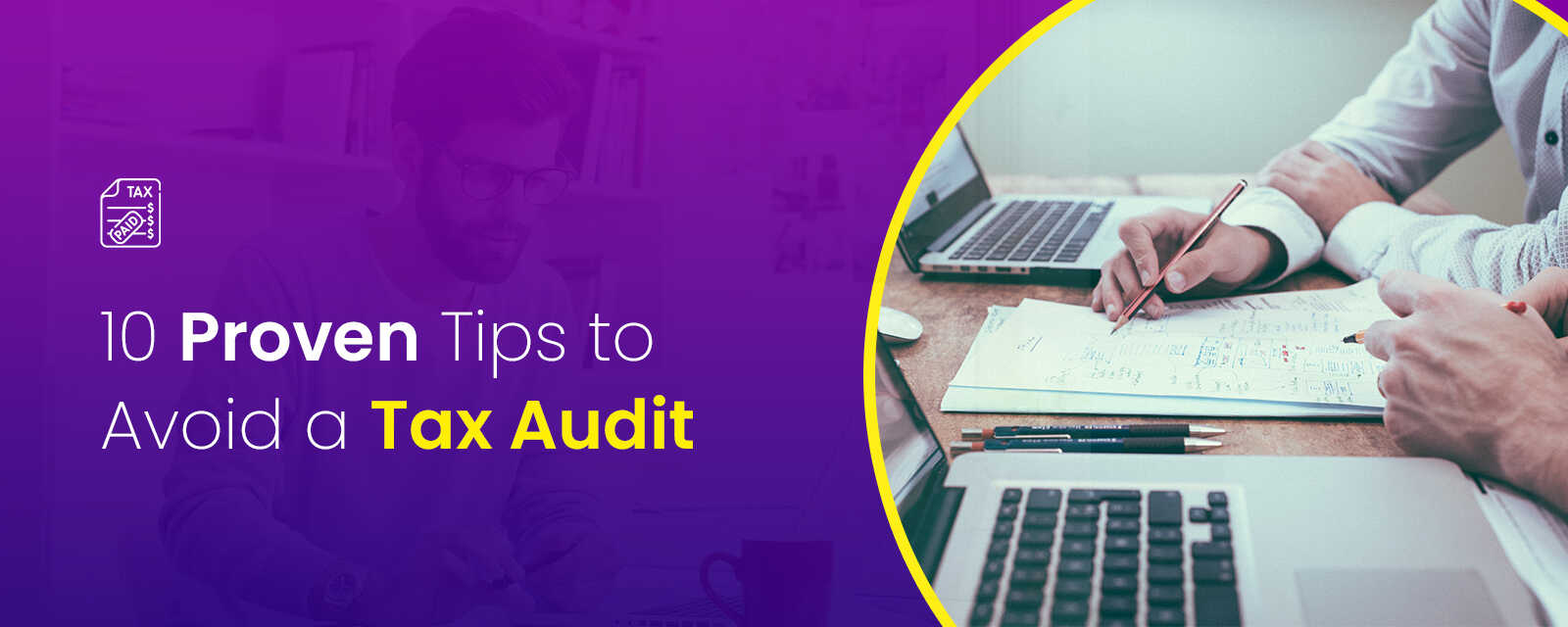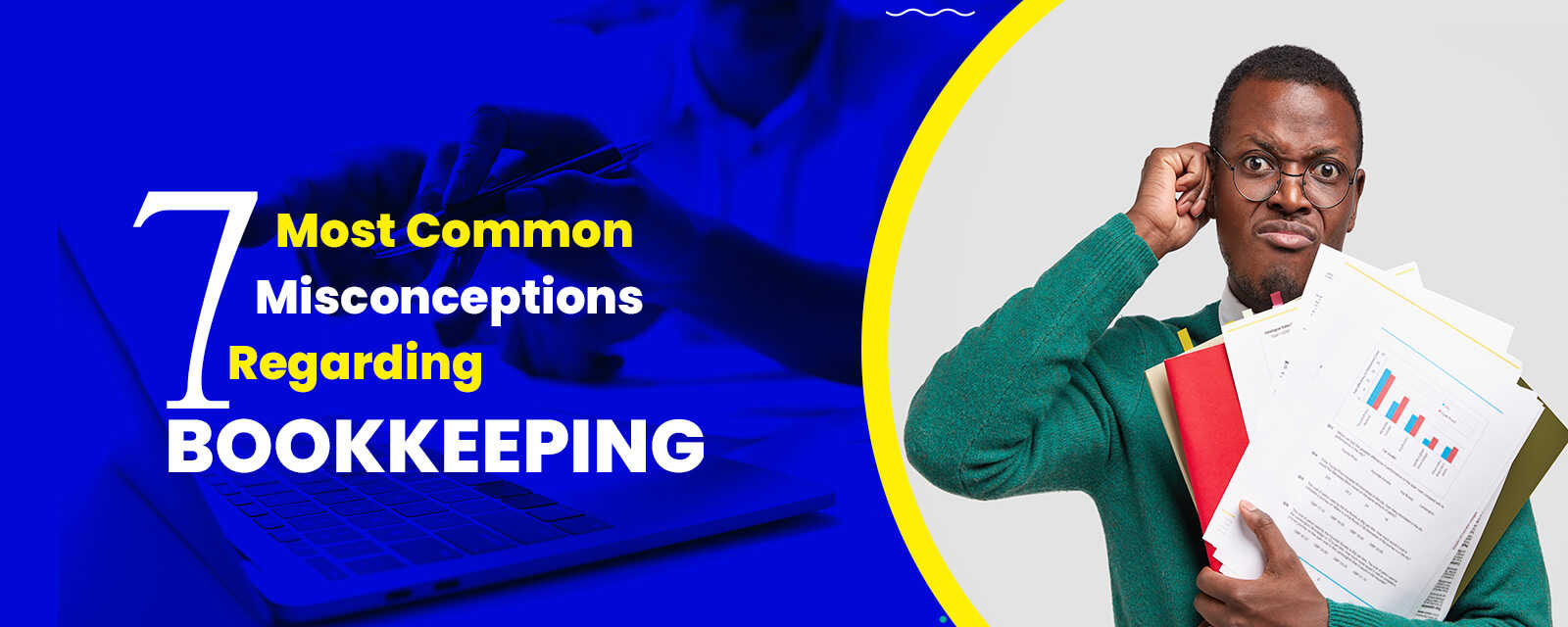small-business-tips
10 Proven Tips to avoid Tax Audit
08/06/2021 10:11 AM

You've probably seen advertisements asserting that you can totally get rid of tax audits by following certain counsels. In case you're also hoping to figure out how to totally stay away from a tax audit, lean in, and I'll reveal to you a mystery: You can't!
Nobody can guarantee you that you won't ever be evaluated. That is on the grounds that while most tax audits are targeted, a nominal rate of audits is totally random.
How small is this percentage? Think about these numbers. The rate of taxpayers generally chosen for a tax audit is ordinarily under 1%. As indicated by the Internal Revenue Service (IRS), in 2015, the organization evaluated 1,228,117 individual income tax returns. That is about 0.7% of taxpayers.
Regardless of whether your return looks almost great, quite possibly you could be chosen for review. So remembering that there might be some measure of blind karma associated with being chosen for an audit, there are some particular factors that can support your odds of having your return pulled.
A couple of changes are all you need to try not to be in the review heap. Here are ten approaches to bring down the chances of getting evaluated this season:
1- BE CAREFUL WHILE DOING MATH
Try not to skip this one. In all honesty, math blunders are one of the top errors that the IRS reports every year. It's additionally one of the simplest to detect. One of the principal things that the IRS checks is maths. Specifically, the figures on those initial two pages of your tax return. So go gradually and double-check your maths.
One mistake from your side can trigger additional examination by the IRS, which is the thing that you're attempting to avoid. Using software can help. You need to make sure that you don't enter your $45,000 pay as $450,000.
The information that you give should be precise. So help yourself out and check the numbers twice.
2- REPORT ALL OF YOUR INCOME
Remember those W-2 and 1099 forms you get via the post office at the start of the year that shows the pay you've procured the earlier year? The IRS gets duplicates of those as well. Make sure to remember each and everyone for your tax form.
The IRS's advanced computers match the sums and may come after you to show you the one that you did exclude with your return. So, if you get a form with a mistaken sum, reach out to the issuer and ask for an adjusted form to be shipped off to both you and the IRS.
Without a doubt, if you are qualified for a credit or allowance that lessens your gross pay or diminishes the measure of duty that you owe, let it all out. Nobody is saying you should pay an abundance of tax. However, "neglecting" to report huge lumps of your pay is simply requesting an audit. Regardless of whether you are safe from the audit this year, you are extending your danger zone if you miss reporting all of your income.
3- USE A SOFTWARE OR HIRE AN ACCOUNTANT
Professionally pre-arranged tax returns are less inclined to be audited. It is good to have a professional manage your taxes, particularly if your own financial situation is complex or you own a business.
Tax preparers can assist you with getting the deductions you're qualified for and ensure a complex return is documented effectively, which may help hold the IRS back from labeling your return.
Suppose your financial situation is more clear and economically accessible. In that case, a tax prep bundle like TurboTax or Free File, the free program offered by the IRS for individuals making under $58,000, might be a decent option.
4- TRY TO AVOID CLAIMING DEDUCTIONS THAT MAY PROVOKE AUDIT
This is easy to say. However, tragically, the IRS doesn't say which deductions will probably provoke a more critical look. There are no official warnings for audit. Many people say that asserting a home office deduction can incite an audit, but there's no evidence of this.
Many years ago, the Government Accountability Office (some time ago the General Accounting Office) compiled insights claimed by sole proprietors to show the sorts of deductions comparable with the measure of their income.
Some finance experts accept that taking more than the average can raise an IRS eyebrow, yet there is no solid support for this view. A business that is qualified for deductions, regardless of whether they are high compared with the measure of their income, should claim them. However, be ready to demonstrate with solid proof if the return is questionable.
5- GET LESS CASH FLOW
Generally, the less cash you make, the less certain you are to be evaluated — until you get beneath $25,000. Truth be told, individuals specifically in the working class, those making up to $100,000 each year, are the least to be examined.
The audit rates increase from the point your pay rises. Almost 30% of the highest earners, those earning and reporting income between $100,000 to $200,000, were audited that same year.
This all conveys that the probability of an audit is really low until you begin making six figures.
6- TAKE LOGICAL CHARITABLE DEDUCTIONS
A charitable gift is one of the few things in this world that is considered good in all ways. It helps individuals, it causes donors to have a positive outlook on themselves, and it tends to lessen your tax. But since no decent deed goes unpunished, your chance of getting a visit from the IRS goes far up if you claim a high number of charitable derivations.
The IRS works with the theory of probability from multiple point of views, and this is one of them. Their system tells the normal sum individuals to donate for every pay class. Step outside that sum, and you may get hit with an audit. All things considered, don't quit donating to your preferred causes. Simply keep good records.
7- DON'T TRY TO BE DIFFERENT
Regarding returns that may be ready for audit, the IRS is searching for exceptions or information designs outside of the normal standard.
It's very uncommon to claim that you parted with more charitable donations than you revealed in taxable pay. Consider the benefit of making a case that may put you in danger for audit: is it awesome? Simply ensure that your assessment story is your genuine story and that you have the records to prove it.
9- CHECK YOUR MAIL
Because of the low budget, IRS labor is also less. With regards to audit, it's almost effortless to target low-hanging fruits. That implies checking for maths and numbers blunders, as mentioned prior. Yet additionally coordinating with information.
In straightforward terms, the IRS will, in a real sense, tally your information with data on a form, for example, a W-2 to what in particular is reported on your assessment form. If something is missing, like information from a side work or profits, it might provoke an audit. Go through your mail and ensure that you have all of your forms before you fire up your PC or head over to a tax pro.
10- TWOFOLD CHECK SOCIAL SECURITY NUMBERS
Translating and composing numbers can be a piece of cake. But, endeavoring to remember SSNs even for your children can bring about botches. Ensure you enter the right numbers and afterwards double-check. Claiming a tax return with some inappropriate Social Security number can be a red audit flag.
11- FIX YOUR BLUNDERS
I don't have an idea why individuals don't like documenting revised returns. Indeed, it doesn’t feel nice to admit an error; however, fixing that misstep is much better than allowing it to hang out there.
If something on your return sticks out, particularly in contrast with your other returns, it may draw in interest but not of the great kind. If the blunder is uncontrollably strange and can't be effectively clarified, it might make the IRS pull all of your returns. Fix it now, so it doesn't prompt more issues.
ENDNOTES
Congratulations! you’ve just learnt how to avoid a tax audit. Just be honest and be careful while documenting your tax return. If you have some more ideas in mind, feel free to share with us and do let us know in the comments if you find this information useful!
Don’t forget to share, and stay tuned for more helpful tips!
Categories
Recently Posted

beginners-guide
7 Most Common Misconceptions Regarding Bookkeeping
12/10/2021 7:44 AM

beginners-guide
Top Reasons Why Accounting Marketing Fails
12/10/2021 8:35 AM

web-design
5 Reasons Why You Should Choose us to Build Your New Website
08/12/2021 12:35 PM

small-business-tips
10 Effective Ways to Promote Your Website for Free
10/02/2021 10:18 AM

small-business-tips
How Having a Bad Website Can Hurt Your Business
15/02/2021 1:27 PM
